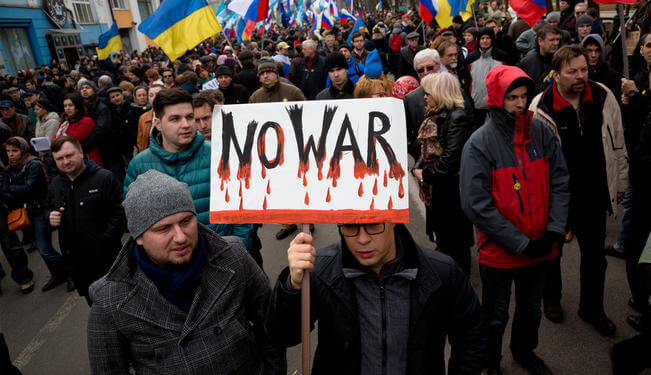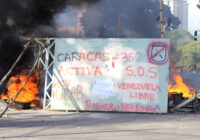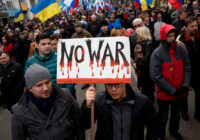Fair Observer’s five best articles of March.
This has been a historic month with ramifications that will reverberate throughout the rest of the century.
Russia has annexed Crimea. That was to be expected. Russia spent blood and treasure to secure access to warm waters in the 19th century. It fought a war in Crimea against the Ottomans, French and British in 1853 to secure access to warm waters. Only in 1954 did Nikita Khrushchev gift Crimea to Ukraine — and that was to celebrate 300 years of Ukraine’s union with Russia.
Furthermore, Russia’s fleet is based in the peninsula and control over Crimea is fundamental to Russian strategic interests. Thanks to Joseph Stalin’s deportation of Tatars to other parts of the Soviet Empire, Russians form a majority in Crimea. No Russian president could have let Crimea go and certainly not Vladimir Putin, who is a former KGB colonel still mourning the collapse of the Soviet Union.
Putin is a de facto dictator who is increasing repression in Russia and many choose to blame him exclusively. However, the United States and the European Union have both been naïve and unwise in dealing with Russia. For years, they have provoked Moscow and expanded east, threatening what our deputy managing editor, Anna Pivovarchuk, calls the dark mysterious Russian soul. If France can have pretensions to being a world power despite being broke, Russian desire for greatness should surprise no one.
The Ukrainian parliament gave an excuse to Russia to intervene by asininely removing Russian as one of the country’s languages. The population of Crimea has gone on to vote for a modern day Anschluss with Russia.
The situation is messy because the principle of state sovereignty is clashing with that of self-determination. The US has been opportunistic in Israel, Iraq, Syria and much of the Middle East in selecting which principle to apply. Russia has chosen one principle for Chechnya and one for Crimea. The result is a very fluid world, where the only operating principle is a preponderance of power.
Crimea marks the end of an era for largely stable borders. After the Cold War, the big change in borders occurred due to the collapse of communist multi-ethnic states such as Yugoslavia and the Soviet Union. Some new countries came into being such as East Timor and South Sudan.
In a world of over 7 billion people, there are new interests and identities that are straining against the status quo. Iraqi Kurdistan is a de facto independent state, causing consternation in Turkey and Iran. The Sykes-Picot paradigm that defined the Middle East after the collapse of the Ottoman Empire has been dealt a death blow by the Syrian Civil War. The conflict has spread beyond borders into Lebanon and Iraq. It shows no sign of abating and all the king’s horses and all the king’s men will not be able to put Humpty Dumpty together again.
Meanwhile, the situation in Egypt has worsened further. The military-backed regime sentenced over 500 members of the Muslim Brotherhood without a fair trial. Mubarakism without Mubarak is certainly flourishing. Arguably, the state is more repressive than ever and its rivals are being liquidated via kangaroo courts, creating an atmosphere of terror in Egypt.
India is witnessing a tumultuous election. The ruling Congress Party is continuing its policy of patronage and cronyism. It is promising to extend the failed policy of job reservations on the basis of caste and religion into the private sector. The opposition Bharatiya Janata Party (BJP) is led by the controversial Gujarat chief minister, Narendra Modi.
Modi’s supporters admire his reputation as a no-nonsense administrator and hope for Gujarat’s high growth rates for the rest of India. His opponents that include India’s Muslim and Christian minorities worry about Gujarat-style riots breaking out across the country.
The Congress is fanning such insecurity and one of its leaders has been arrested for threatening to chop Modi into many pieces. Despite the terrible track record and obvious weakness of the Congress, the BJP has its own challenges and its chances of victory are uncertain. Three key reasons account for this.
First, the BJP has selected some truly awful candidates. Unlike the US, India does not have a primary system. This means the “high command” decides who fights the election and which constituency they get. This does not matter if you are the Congress Party because people are voting for the ruling Nehru family. For challengers like the BJP, candidate selection is critical. The BJP has selected candidates who are certain to lose because they are either corrupt or lack a local base. Modi himself is contesting in the Varanasi constituency, the ancient holy city of India, which he has barely visited in the past.
Second, the fragmentation of Indian politics means that regional parties are on the rise and have strong support bases. The BJP is primarily a party of the north and west, and has not been able to expand.
Third, the Aam Aadmi Party (AAP), a new anticorruption party, is the joker in the pack. The AAP combines some great Gandhian ideas about grassroots democracy along with an economic populism reminiscent of Hugo Chavez. Those disillusioned with the status quo and India’s political establishment are turning to the AAP; although it remains to be seen if the party has any appeal outside Delhi.
The missing Malaysian plane is as yet an unsolved mystery. Aircrafts do not generally go missing and, therefore, there are all kinds of theories explaining the phenomenon. The incident demonstrates a few things about modern day aviation.
First, countries are not programmed to cooperate. China was justifiably miffed at Malaysia’s lack of transparency regarding information vital to the search and rescue. Second, it is a reminder that while flying is safer than driving a car, when things go wrong, they do so in a spectacular fashion. Third, it demonstrates that the media is obsessed with stories about planes to an unhealthy degree. Day after day, headlines about the plane were given top billing even by prestigious organizations such as the BBC. Other important stories were neglected on a routine basis. The media has to do a better job about making sense of the world.
1: Google, Duolingo and the Problems of Internet Translation — Victoria Livingstone
Duolingo’s push to “translate the web” is not as straightforward as it seems.
2: Putin’s End Game in Crimea — Polina Popova
The Crimean referendum highlights the differences in strategy between the West and Russia.
3: Barking at Russia is Easy, Biting is Not — Nishtha Chugh
Bungling with Russia over Crimea will send the West knocked out with a bloody nose.
4: The Gulf of Guinea: Maritime Piracy’s New Global Nerve Center — Christos Kyrou & Kaade Wallace
Piracy in the Gulf of Guinea could dwarf everything the world has seen in Somalia.
5: Zimbabwe: The Countdown for Mugabe’s Succession — Matteo Figus
Who will succeed Robert Mugabe?
Image: Copyright © Shutterstock. All Rights Reserved
Support Fair Observer
We rely on your support for our independence, diversity and quality.
For more than 10 years, Fair Observer has been free, fair and independent. No billionaire owns us, no advertisers control us. We are a reader-supported nonprofit. Unlike many other publications, we keep our content free for readers regardless of where they live or whether they can afford to pay. We have no paywalls and no ads.
In the post-truth era of fake news, echo chambers and filter bubbles, we publish a plurality of perspectives from around the world. Anyone can publish with us, but everyone goes through a rigorous editorial process. So, you get fact-checked, well-reasoned content instead of noise.
We publish 2,500+ voices from 90+ countries. We also conduct education and training programs
on subjects ranging from digital media and journalism to writing and critical thinking. This
doesn’t come cheap. Servers, editors, trainers and web developers cost
money.
Please consider supporting us on a regular basis as a recurring donor or a
sustaining member.
Will you support FO’s journalism?
We rely on your support for our independence, diversity and quality.







Comment